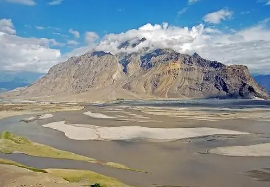- 阅读
- 阅读
- 技巧
- 百科
- 试题
- 文化
- 技能
Asia
亚洲版块
Australia's indigenous people
澳大利亚的土著居民
Voice recognition
话语认可

But Aboriginal leaders recall how John Howard, a former conservative prime minister, abolished a commission charged with protecting Aboriginal interests.
但原著领袖回忆起前保守派总理约翰·霍华德是如何废除一个负责保护原住民利益的委员会的。
Only the constitution can truly protect them, they argue.
他们认为,只有宪法才能真正保护他们。
Mr Albanese has embraced this idea.
艾博年先生接受了这一想法。
For the referendum campaign, his government will draw on a report by Marcia Langton and Tom Calma, two Aboriginal leaders, explaining how the voice would work.
在公投活动中,他的政府将利用两位土著领导人玛西娅·兰顿和汤姆·卡尔马的一份报告,解释声音将如何运作。
They propose a body of 24, chosen by Aboriginal people, to advise the federal government whenever legislation affecting indigenous Australians’ “social, spiritual and economic well-being” is in the works.
他们提议成立一个由原住民挑选的24人团体,在联邦政府制定影响土著澳大利亚人“社会、精神和经济福祉”的法律时,向联邦政府提供建议。
This approach, Mr Albanese argues, would mean policies “are always more effective”.
艾博年认为,这种方法将意味着政策“总是更有效”。
He, too, points to shocking statistics.
他也指出了令人震惊的统计数据。
Aboriginal men die on average 8.6 years earlier than other Australians (for women, it is 7.8 years).
原住民男性的平均死亡年龄比其他澳大利亚人早8.6岁(女性为7.8岁)。
Some critics, including a handful of Aboriginal figures, deride the idea as mere symbolism.
一些批评家,包括一些土著人物,嘲笑这个想法仅仅是象征意义。
Mr Albanese is keen on symbolic gestures: his government’s press conferences now feature the flags used by Australia’s indigenous peoples next to the Australian one.
艾博年热衷于象征性的姿态:他的政府的新闻发布会现在把澳大利亚土著人民使用的旗帜放在澳大利亚国旗的旁边。
Yet changing the constitution will not be as easy as unfurling extra flags.
然而,修改宪法不会像展开额外的旗帜那么容易。
The document’s 19th-century framers set a high bar for amendments: a “yes” vote both nationally and in at least four of the country’s six states.
19世纪的宪法起草者对修正案设定了很高的标准:在全国范围内以及六个州中的至少四个州,都要投赞成票。
Just eight of 44 proposed changes have passed in 121 years.
在121年的时间里,44项拟议的改革中只有8项获得通过。
There are some hints, however, of bipartisan political support.
然而,有一些迹象表明,两党在政治上获得了支持。
The conservative opposition seems to have warmed slightly to the Uluru Statement since leaving government.
保守的在野党在离开政府后,似乎对“乌鲁鲁声明”有所好感。
Julian Leeser, its Aboriginal affairs spokesman, has publicly supported a constitutional voice.
原住民事务发言人朱利安·利泽公开支持宪法话语权。
Peter Dutton, the opposition leader, is more vague.
反对党领袖彼得·达顿则更加含糊其辞。
The election result that swept Labor to power in May suggests Australians are tired of the culture wars that prevailed under nine previous years of conservative government.
工党在5月份大选中获胜,这表明澳大利亚人已经厌倦了过去九年保守派政府执政期间盛行的文化战争。
Penny Wong, the foreign minister, even talks of a “First Nations approach to foreign policy”.
外交部长黄英贤甚至谈到了“第一民族外交政策”。
Mr Albanese is optimistic that a referendum will pass.
艾博年乐观地认为,公投将会通过。
As he puts it, “If not now, when?”
正如他所说,“如果不是现在,那是什么时候呢?”
来源:经济学人
参与评论